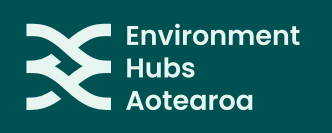Environment Hubs Aotearoa launches innovative research to learn from communities affected by Cyclone Gabrielle
One year after Cyclone Gabrielle, Environment Hubs Aotearoa and Massey University launch original research to learn from affected communities and co-design a roadmap to build climate resilient, better-prepared communities
Environment Hubs Aotearoa (EHA) in partnership with Massey University have launched a research project to give voice to and learn from the citizens and communities affected by the Auckland Anniversary Weekend floods and Cyclone Gabrielle in early 2023.
In the wake of these severe weather events, community organisations, including EHA’s hubs in Hawke’s Bay, Tairāwhiti and Tāmaki Makaurau Auckland, played a vital role in supporting affected communities. They coordinated the response effort and supported people to rebuild their lives, as gaps in the response from civil authorities quickly became evident. “As a network of hubs focused on community resilience, we could immediately see the gaps in the system. We must use the learnings from this opportunity to help shape and influence a better response to, and preparation for, future crises”, comments Georgina Morrison, EHA’s Executive Officer.
“If our communities were better prepared, lives would have been saved. Two of the biggest issues not planned for were total loss of communications and physical access to communities.”
Members of the affected communities are invited to share their experiences through this survey. Answers will help build a roadmap for how authorities can better support communities to respond and recover, and build a climate resilient Aotearoa. “We envisage communities and tangata whenua collectively having the capacity and capability to respond to future events, to come together for a faster and more equitable recovery, and to receive the necessary support and recognition from government and local authorities in order to build resilience”, comments the research lead Dr Jennifer Pannell, Data Curator and Research Lead at Environment Hubs Aotearoa.
“We backed this research because we believe understanding what happened - from the people affected - is crucial. This is knowledge that can support robust disaster response plans for our communities”, explains Yii Petrus, Programme Director at Whakatupu Aotearoa Foundation, main funder and key supporter of the research. “Knowing what worked well, and indicating where the system failed, is just the starting point. Climate change is impacting us now and how we adapt to this increasingly real future is yet to be decided”.
Environment Hubs Aotearoa is leading this research in partnership with Massey University, and in collaboration with Zero Waste Network, Community Energy Network, Para Kore, Te Weu Tairāwhiti, Waiheke Resources Trust and Sustainable Hawke’s Bay.

